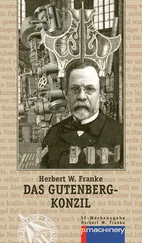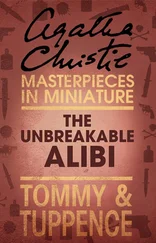“Pay them no mind,” said Keffer, looking up from his own scraps of parchment. When he didn’t have his flute, he drew. The delicacy of his sketches and his music was surprising, given the thick power of his hands. He had a little ash-wood flute and a larger one that he had cast in brass to gain the rank of journeyman. It was well wrought, as were the tablemen that Konrad carved: strange gnomes, fantastic horses, each detailed and grotesque. Hans too would sometimes etch on sheets of metal, little engravings that were just for fun.
In truth it was not that unpleasant, bolted in there with the cold wind battering outside. They wet their whistles with the master’s wine, and hummed and played and scratched. Keffer’s pen was ribald. Cackling, he would bring over his drawings: bulbous tits that squeezed a massive cock; a finger or a fist that vanished in a hairy slit. Hans and Konrad bickered gently through an endless game, to judge from that same grubby pile of coins they just kept shifting back and forth.
For several days the talk had turned to wondering about the project that the master had in mind. Gutenberg had gone away for a few days and left them printing under Hans. But that grammar was small fry, Hans averred — a practice run, before whatever better book the master planned.
“Don’t care what it is, just so we’re moving.” Konrad used his knife to shave a curl from the oak table. “I’m sick of waiting on you clods.”
“Careful what you wish for,” Hans said knowingly. “I’d lay good money it is big.”
“Or else a schoolbook he can pop at half a shilling,” Keffer put in.
Konrad nodded. “The main thing is, it should be quick.”
Peter lifted up his head to hear them better, catching as he did a sour look from Hans. “Why don’t you save your breath and ask the scribe,” the old smith scoffed.
As one they looked at Peter.
“As if I had a clue.”
Keffer scratched his yellow beard. “You must have some idea.”
Greek and Roman titles whistled through his head. Aristotle and Aquinas, Virgil, Euclid, sprang to mind. But they were miles away from markets for such learned works.
“Just pray it’s short.” Konrad began paring his nails.
“A psalter, maybe, or a history. Neither is that long.” Peter weighed the buyers up and down the Rhine: mainly nobles, merchants, Elders, and the church.
“Nah.” Hans hoiked a gob of spit into the fire. “I warrant he’s got something bigger on his mind.” He turned back toward the scribe, eyes narrowed. “A sacred work, perhaps.”
“It’s just a guess.”
“You wouldn’t know?”
“I wish I did.”
It struck Peter that Hans must have downed a jarful, by the way his eyes were rolling in their sockets.
“You scribble all damn night. Don’t tell me you don’t know what for.”
“It’s just my practice, to keep my hand.”
“Your precious bloody hand.”
“Now, Hans.” Konrad lifted his, a great big slab of meat, and shook it at the smith.
“‘Now, Hans.’” The old smith spat again; his voice cranked higher. “Don’t Hans me, man.” His eyes were shot with red. “I’m sick of it, I tell you. Pussy here thinks he’s the bloody savior.”
“Cool it.” Keffer reached to grab him, but Hans jerked to his feet, then clutched the table with both hands to keep from falling. “I’m sick of it, I say.” Hans’s voice was thicker, slurring. “Fancy hands has prolly gone already, drawn some pretty new type for the master, little shit.”
“Shut it.” Konrad grabbed Hans by the belt and sat him roughly down, then smacked him smartly on top of his thick skull. When Hans kept cursing, Konrad stood and flung his blade into the wood with a loud thwock , the steel inches from the old smith’s hand. Hans flinched and held his tongue.
“Forget it,” Keffer offered. “He’s just drunk.”
Even so, it irked Peter. He crossed the room and loomed above the little leathered man. “It’s just my trade. The craft I learned.”
“Like you had to learn a craft. Pretty little merchant’s boy like you.” Hans tried to hoot but succeeded only at a phlegmy cough.
Peter looked at each of them in turn: Hans bald and slumped, Konrad worrying at his blade, Keffer poking at the fire. The story of his goddamned life — mongrel, bastard, orphan, he had heard them all. Labels, like the tags that designated trades, or ranks, or ores. He scowled and rolled the sleeve up his left arm. The scar from shearing he had borne since he was five snaked from his wrist up to his elbow.
“Peter Schoeffer, born at Gernsheim. Not a Fust. The sheep were kept inside, so you could say, I guess, that I was born in a stable.”
“Now he plays the Christ child,” Hans said snidely. Konrad laughed, though, and something in the room shifted.
“You shut your gob,” Konrad said again to Hans, and pulled his knife out of the table. He smiled and surveyed the full length of that white scar. “That’s mighty nice. It might look better, though — more balanced, if you get my meaning — if I could carve you something matching on the right.”
They got on better after that. Hans never admitted that he’d been out of line, but he thawed bit by bit throughout the Advent-tide. The more the world outside iced over, the more the mood inside the workshop warmed. It helped that Gutenberg had gone away again; it also helped that Hans, for all his bluster, was a man who honored work. He knew that the new apprentice had not once voiced a complaint through all those hellish weeks of smelting.
A few days after Peter bared his forearm, Hans pulled him aside and said that he was sick of pouring molten metal into that damned casting box. He much preferred to smelt and mix the metal, and to leave the blinding part to someone else. He nudged Peter toward the casting table. “Fancy hands make you the man.”
It was a change — and in the absence of a sign from Petrus Heilant, Peter craved change of any kind.
He listened and watched closely as Hans demonstrated how to cast a piece of metal type. First he lifted off the top of the wooden casting box to show a row of trays filled with damp sand. Hans pressed a letter punch into the sand, and then another: first the long ascending stroke, and then a rounded shorter one, to make the hollows for a letter h . He did this in each tiny square and then closed the lid, divided into narrow chimneys just above each tray. He took a ladle, dipped it in the pot of molten metal, and poured some into each shaft. When they were full, he waited, counting up to five, and then opened up the box and pulled the hardened letters out. “Still need some filing,” he said, tossing each one on a pile. He handed Peter the two punches. “An idiot could do it,” he said, grinning.
Hans had never cared to know his state of mind or heart and did not seem to do so now. He simply watched, his leathered eyelids half obscuring his keen eyes — then reached, correcting: straightening Peter’s elbow, sliding his hand a fraction farther down the punch. His words were few and focused on the task: “Not so deep.” “Put a little power there.” He taught Peter how to hold the punch at one precise, specific angle, how to ease the top on without disturbing one small grain of sand. He skimmed the skin that formed upon the metal, with a flick of his wrist showed how to pour the molten trickle in.
The chunks of metal with a letter on their tip were no prettier than they had been before, but for the first time Peter understood — in the plain act of molding and of making — that what they did was utterly astonishing. No one before had ever made small letters out of metal: it was the unexpected combination — the marrying of metalwork to writing — that had birthed a thing that no man on God’s green earth had seen before.
Читать дальше












